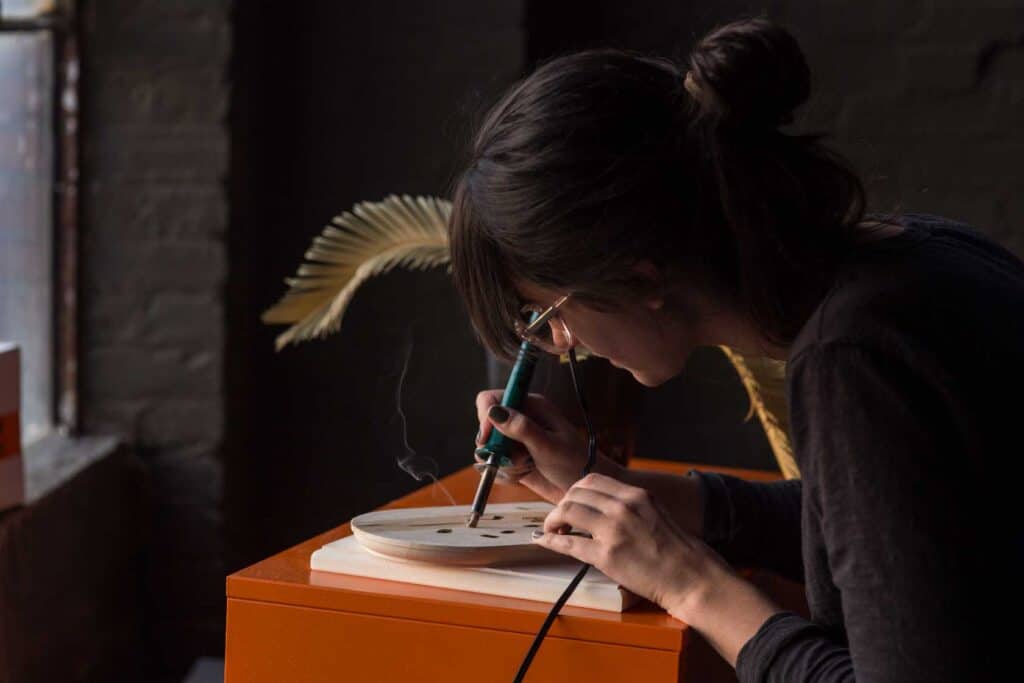
As someone who teaches others new hobbies every day, I often get asked the question, “What is the difference between a skill and a hobby?”
A skill is an ability that either comes naturally or is learned through practice, whereas a hobby is something people do because they enjoy it. A skill can be a hobby, but not all hobbies are skills. For example, playing guitar is a skill, but collecting guitars is a hobby.
Some people argue that there is no difference between skills and hobbies – that they are both simply things people do for enjoyment. However, I believe there are a few clear differences. I’m going to show you how to quickly tell the difference between the two, and I’ll even give you a few examples of each.
WHAT IS A SKILL?
Skills are usually something we are good at from the get-go, or become good at with practice. We often don’t think of them as “things we do for fun” because they come so naturally to us or because of the amount of work that goes into them.
I’ve always been able to draw – it’s just something I can do without thinking about it. As such, drawing has never been something I had to “practice,” it’s just a skill I have.
In design school, I had to draw all the time, and it felt like work, so I don’t consider drawing a “hobby” in my life.
WHAT IS A HOBBY?
Hobbies, on the other hand, are generally things we choose to do for fun – even if they don’t come naturally to us. We might have to put in a bit of effort to get good at them, but the payoff is typically worth it because we enjoy the activity itself.
For example, I’ve always been terrible at crosswords. As a kid, I would do them with my dad and he would finish long before I did. But I kept at it because I enjoyed the challenge and spending time with him.
Over time, I got better and better at crosswords, to the point where I can now do them quite quickly. However, they are still a hobby for me because I choose to do them – I don’t get paid to do crosswords and no one is asking me to do them.
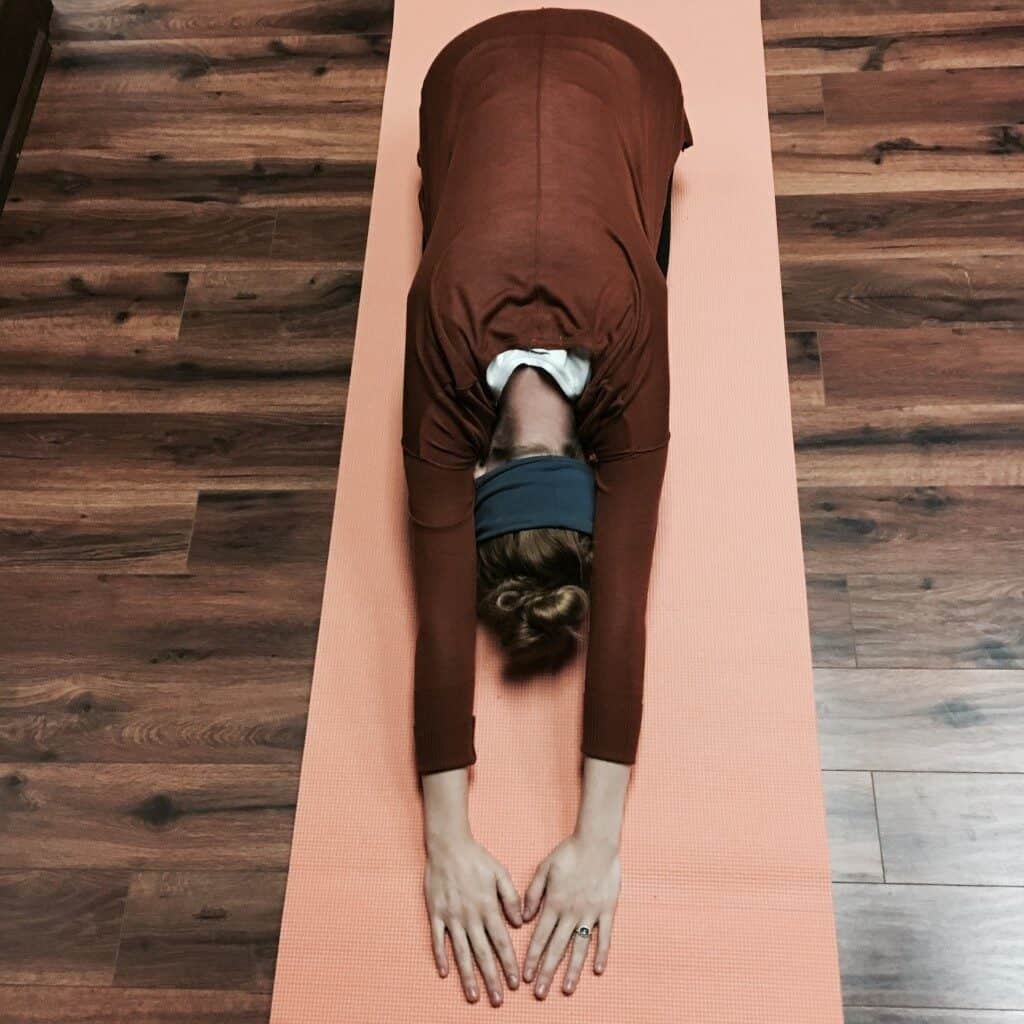
WHAT IS THE DIFFERENCE BETWEEN SKILL AND HOBBY?
Now that you know the difference between a skill and a hobby, let’s look at how to tell them apart. Here are three quick tips:
- Skills can be improved through practice, whereas hobbies don’t require improvement.
- Skills are often things that you learn through practice, while hobbies don’t usually require any learning.
- Skills are often measurable, while hobbies usually aren’t.
Let’s look at an example to see how these tips work in practice. Say you want to start a new hobby and you’re considering two options: making kombucha or learning how to pick locks (yes that’s a thing – and I’ve even got a tutorial on it.)
Also, of important note is how a skill and a hobby are brought to life. There’s a ton of buzz around turning hobbies into businesses – and with our experience in doing just that, we’d advise not monetizing a hobby. If however you simply have a skill that lacks the passion of a hobby or something that helps define you or fills the void that only a hobby can do, then you may consider monetizing it. For more on that, be sure to check out our article that uses our experience in launching New Hobby Box to list out 7 disadvantages of monetizing a hobby.
Using the tips above, we can quickly tell that making kombucha is a hobby, and learning how to pick locks is a skill.
Reasons Making Kombucha is a Hobby
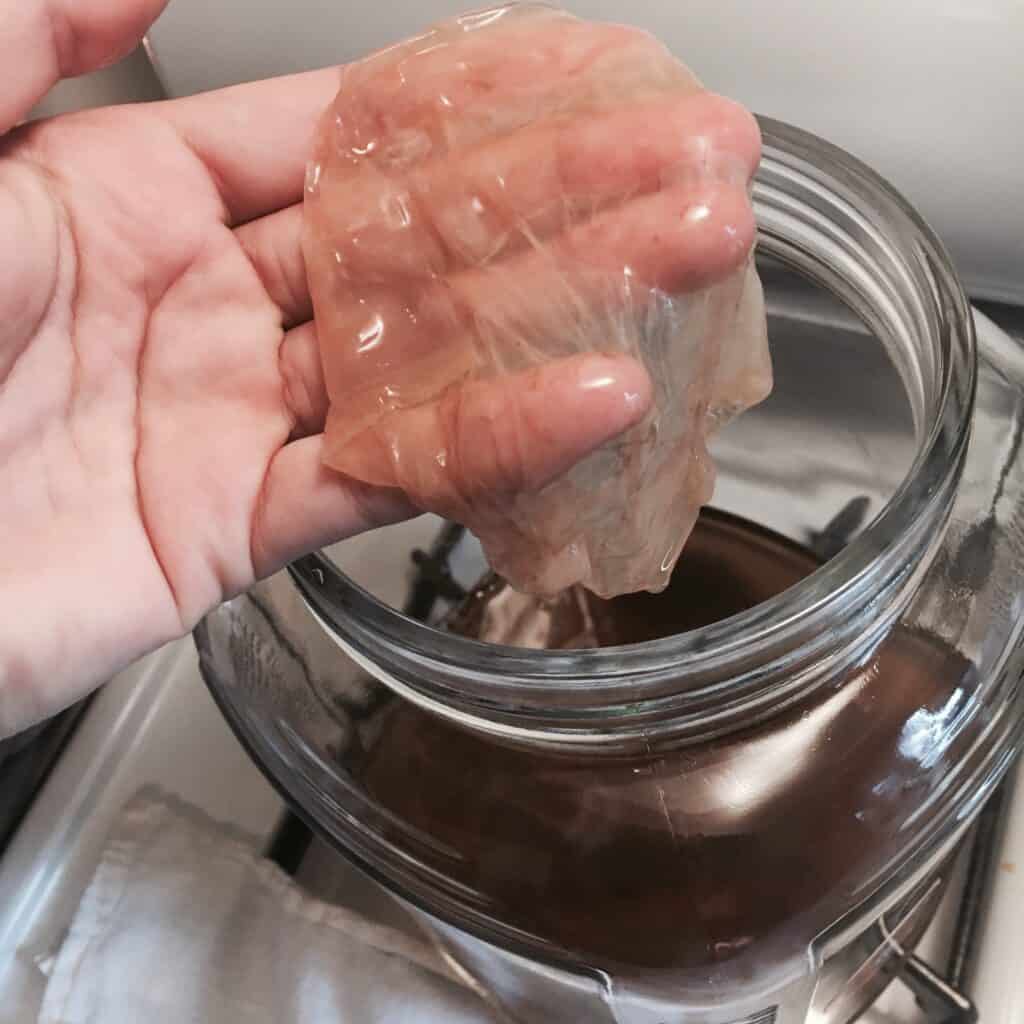
- Making kombucha doesn’t require improvement, and is typically done for enjoyment.
- Making kombucha doesn’t require practice, since it’s mostly just putting a scoby into 2 gallon jar and letting it sit for a while – Making Kombucha is really fun to do, and if you want to learn how, you can find the tutorial here.
- There is no measurable skill to making kombucha. Even if your batch turns out badly, there’s not a grading system to your enjoyment.
Reasons Picking Locks is a Hobby
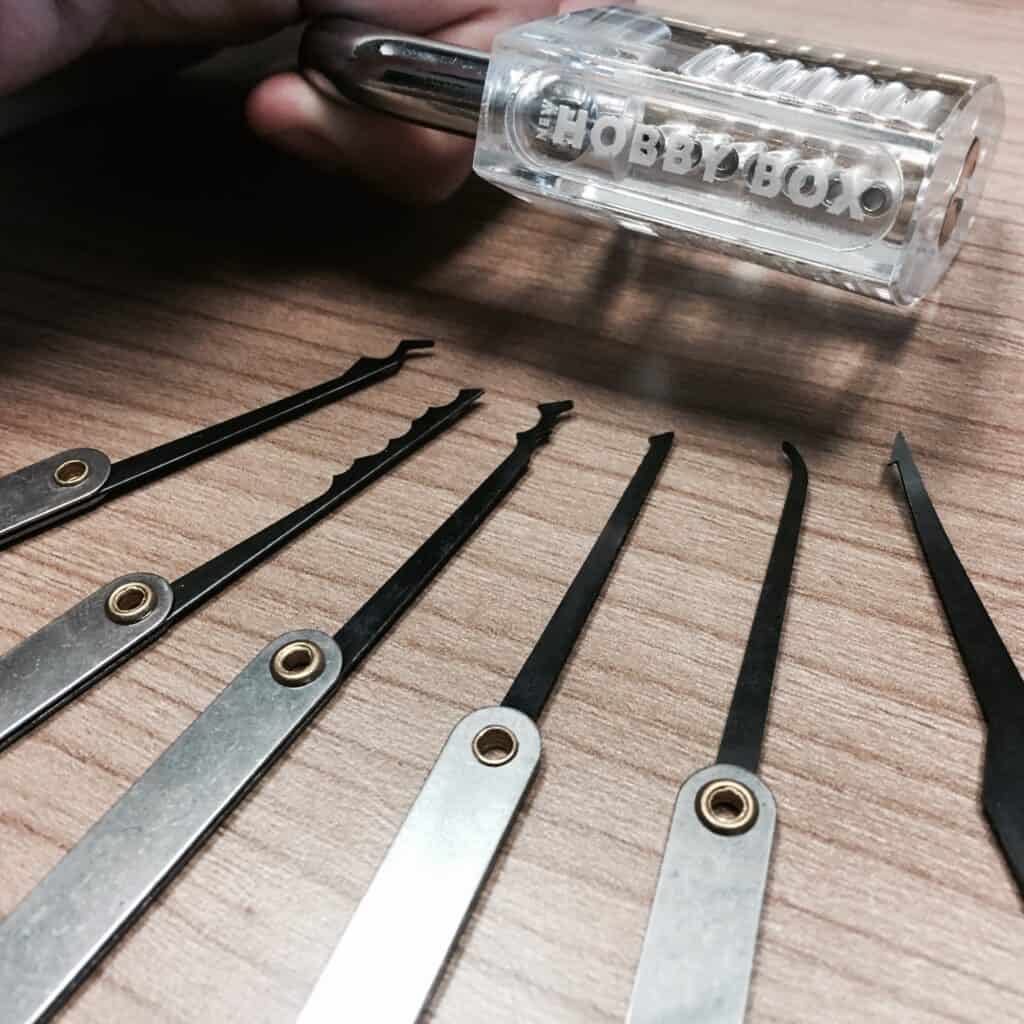
- Picking locks requires practice and can be improved with time.
- You need to learn how to pick locks, through either reading about it or taking a class.
- Picking locks is measurable – you can time yourself, see how many different types of locks you can pick, etc.
Even if picking locks starts as a hobby, it can quickly become a skill if you put in the practice, or it can start out as a skill and become a hobby as well.
THE MOST POPULAR SKILLS AND HOBBIES
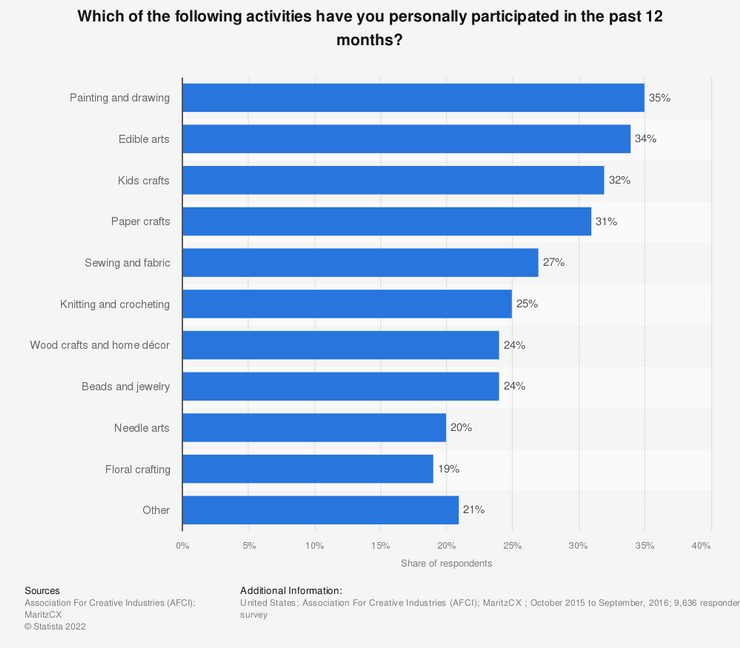
Everybody has a skill or hobby, and the list options are endless. I did some research on the most popular hobbies and skills in the US, and found a great study that asked people what types of hobbies or skills they have participated in during the past year.
Three of the Most Popular Hobbies and Skills in the United States
The results are quite interesting. Painting and drawing were the most popular answers, which is one of those topics that could be a skill or a hobby. But it’s clear there are a few themes in the responses. The patterns of responses can be grouped into fine arts, fiber arts, and craft skills.
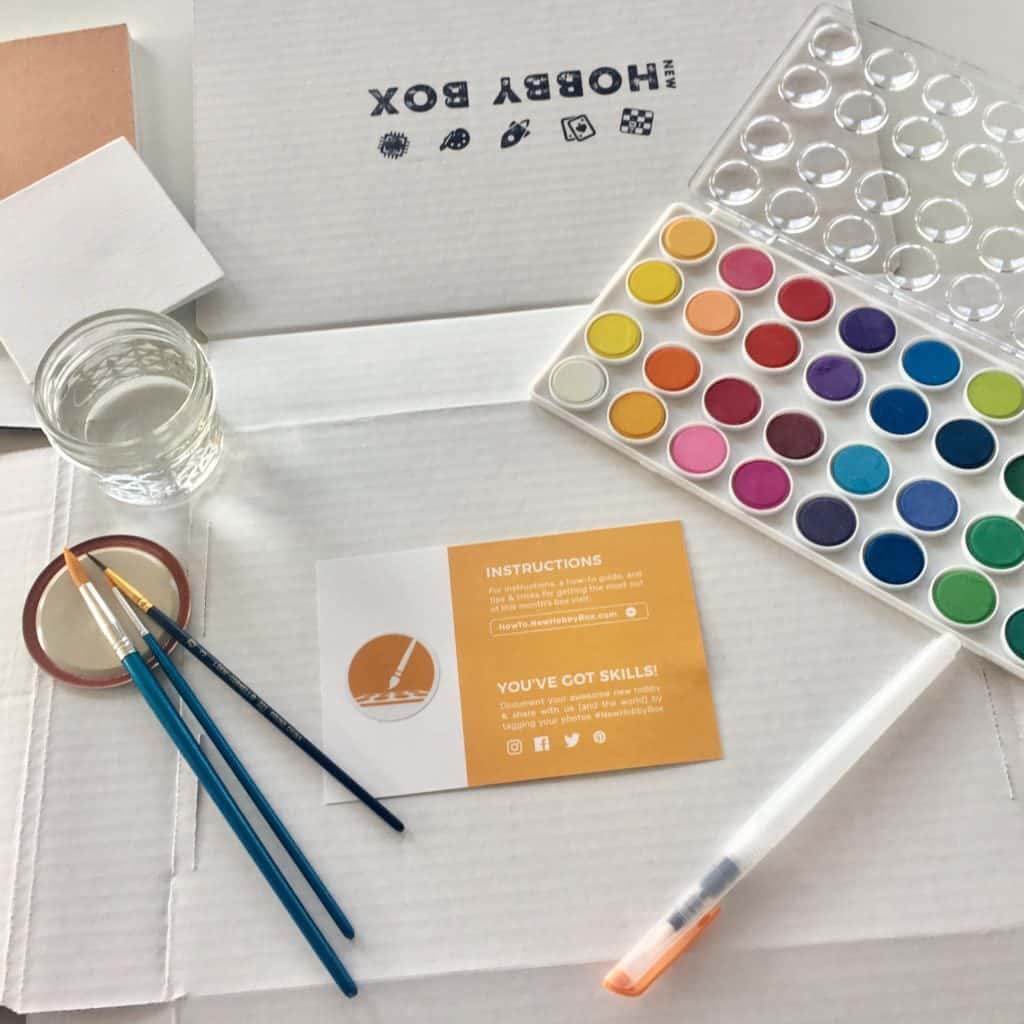
FINE ARTS SKILLS AND HOBBIES
Fine arts skills are those that focus on the creation of art, typically through drawing, painting, or sculpting. These activities can be done for fun or as a profession.
Watercolor is a great painting technique that is a skill and a hobby. It’s great for beginners too – it’s often the most forgiving way of painting. If you want to give that a shot, head over to the Master Watercolor With a Simple Tutorial.
Calligraphy is another great example of fine arts skills and hobbies. The word calligraphy actually means artistic writing, and is something that takes tons of practice to do well, but is something that most people do for fun.
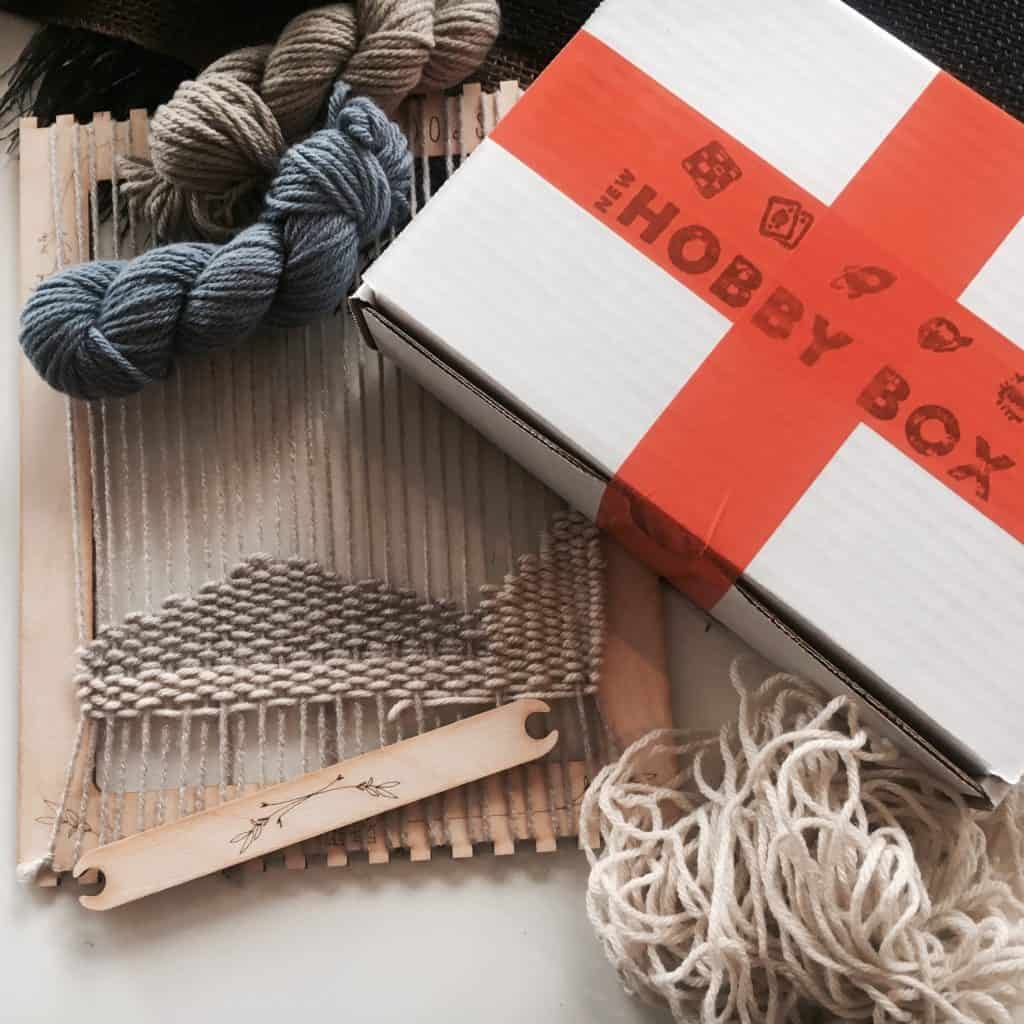
FIBER ARTS SKILLS AND HOBBIES
Fiber arts skills involve the use of fibers to create art, typically through weaving, knitting, or crocheting. You could even include paper making in fiber arts. These activities can also be done for fun or as a profession.
I love fiber arts, and it’s clear to see that if you just look at some of the tutorials on New Hobby Box. Here are a few of the fiber arts tutorials that you’ll find on the site.
- Macrame Plant Hanger DIY: The Beginner’s Guide
- How to Weave Using a Pop-Out Loom
- The Art of Paper Making: How to Make Paper by Hand
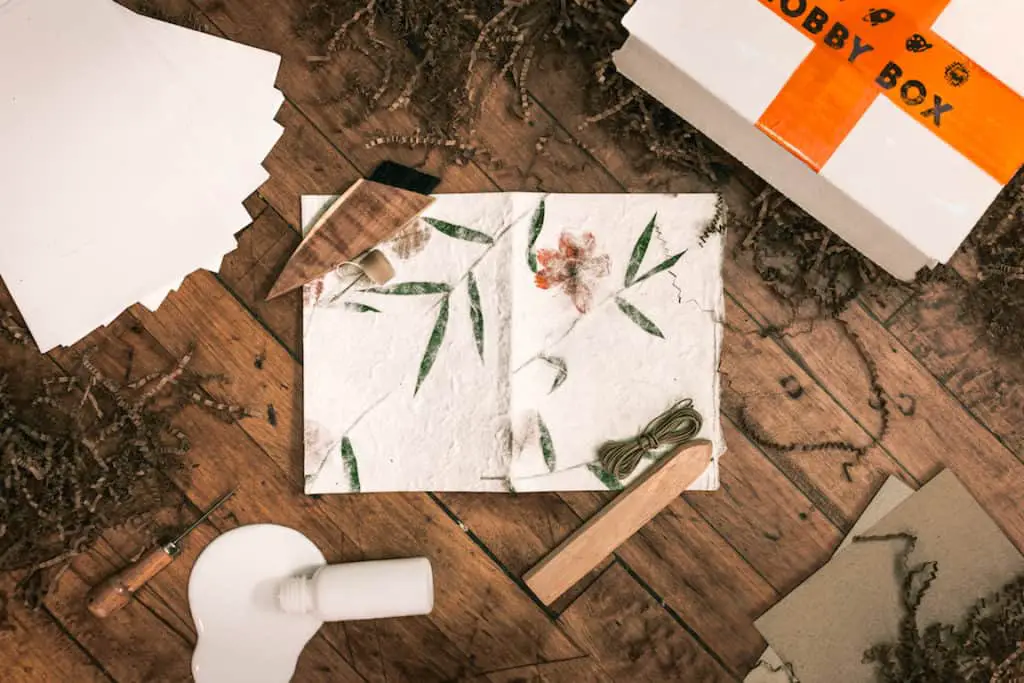
CRAFT SKILLS AND HOBBIES
Craft skills involve the making of things, usually with your hands. This could be woodworking, sewing, quilting, or even jewelry making. These activities can also be done for fun or as a profession.
New Hobby Box is filled with craft skills, like DIY Book Binding or Wire Wrapping.
SKILLS AND HOBBIES START TO BLEND AFTER AWHILE
It’s interesting to see how the most popular hobbies and skills in the US start to blend after a while. People who enjoy one typically learn the other, and vice versa. This is likely because they share commonalities, like the need for practice or the enjoyment of making things by hand.
The better you get at most things, or the better you are at something naturally, perhaps the more likely you are to enjoy it. So in a way, skills and hobbies can often be inseparable.
When I’m writing tutorials on New Hobby Box, I tend to classify a hobby as a skill when it’s more technical in nature. Lock picking, or how to solder a USB charger for instance. Each requires a ton of precision and there is measurable success associated with the hobby.
But there are probably a few different ways to think about how to classify a hobby as a skill.
And in the end, it’s up to you – but perhaps it doesn’t matter if something is called skill or a hobby. If you’re learning and you love it, then categorize it however you like, right? The only instance where it could possibly matter is when you’re applying for a job and that daunting section “Interests and Hobbies” needs to be filled out on your resume.
Knowing how to write about hobbies on your resume, and knowing the difference between a skill and a hobby could actually have some gravity in this instance. If you’ve landed on our site here because you’re working on your CV, this is a great starter post, but you should hop over to our article that lists 7 awesome hobbies to include on your resume and at the end of the article shows you how to write about hobbies on a resume including 5 examples.
Happy Hobbying!
